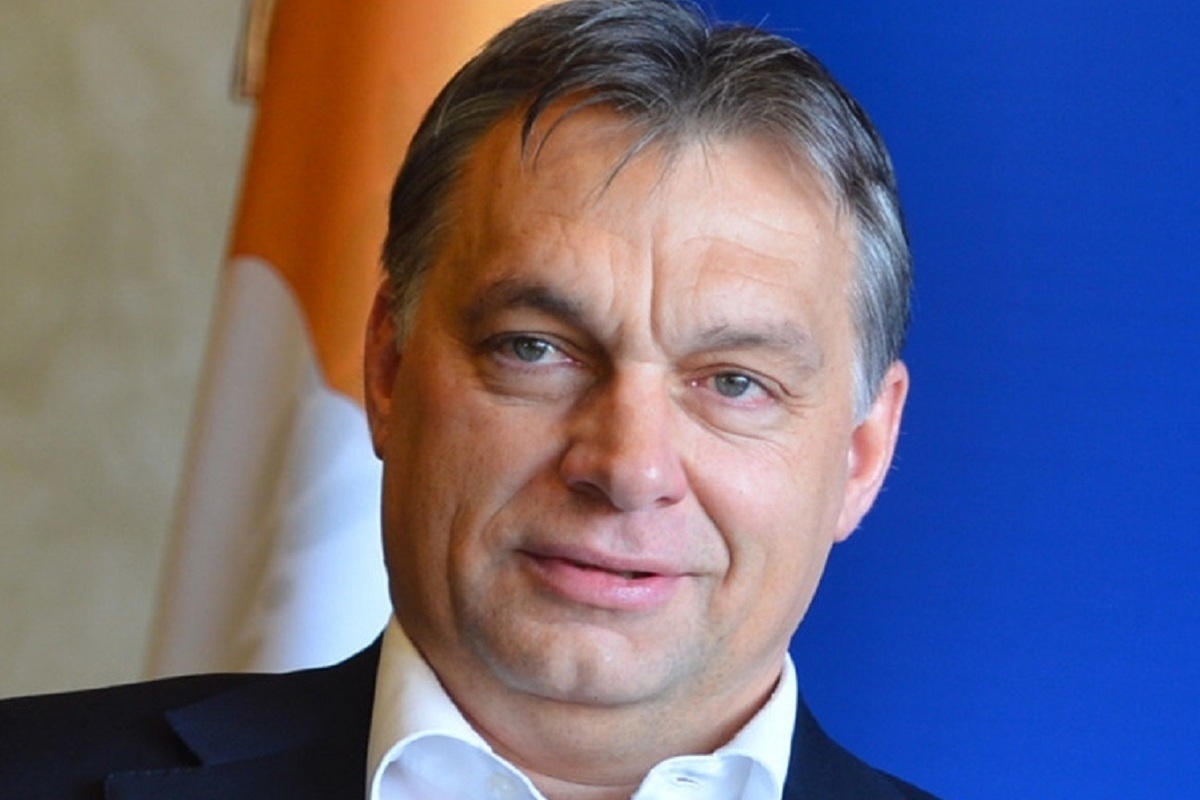Hungarian leader Orban’s position on NATO expansion disappointed the United States
[ad_1]

The United States is disappointed that Hungary’s ratification of Sweden’s NATO membership agreement is taking so long, Washington’s ambassador said, warning that Budapest is “really alone” and that the Hungarian government is pursuing “foreign fantasies” instead of foreign policy.
As The Guardian reminds, after several months of delays, the Turkish parliament recently approved Sweden’s membership in NATO. Turkish President Recep Tayyip Erdogan then signed the document on Thursday, leaving Hungary as the only country in the 31-member alliance that has not yet ratified Sweden’s bid.
While the Hungarian government formally supports Sweden’s entry into the North Atlantic Alliance, the country’s parliament avoided voting on the issue, causing disappointment among NATO allies and raising questions about the motives of Hungarian Prime Minister Viktor Orban.
The Hungarian leader regularly criticizes his Western allies and maintains relations with Moscow and Beijing, The Guardian notes.
In an interview at the US Embassy in Budapest on Thursday afternoon, US Ambassador David Pressman said: “An alliance is only as strong as the commitments we make to each other and the commitments we keep. I think it is important that the Hungarian government fulfills its commitment, and its commitment was that it will not be the last ally to ratify Sweden’s accession.”
The American diplomat added: “Obviously, keeping your word is an important element of trust in any relationship.”
Domestically, senior Hungarian politicians argued that Sweden’s bid was not put to a parliamentary vote because the Scandinavian country was critical of the state of Hungarian democracy. However, diplomats familiar with the NATO application process say Hungary has never formally raised any objections to Sweden’s membership.
This week, Viktor Orban sent a letter to his Swedish counterpart Ulf Kristersson inviting him to discussions, and the Swedish prime minister accepted the offer, while indicating that he would not negotiate the country’s NATO membership.
Asked whether Hungary had made any demands, Pressman said: “The United States is not aware of the reasons for the Hungarian government’s delay.”
The American ambassador spoke directly about Washington’s position: “We are disappointed that it took so long. And we look forward to Hungary fulfilling the commitments it has made to the United States and its other allies.”
The US ambassador also highlighted Budapest’s deepening diplomatic isolation, which goes beyond the issue of Sweden’s accession to NATO.
“Hungary is truly alone – and it doesn’t need to be,” the US ambassador said, citing Hungarian government decisions such as blocking EU funding for Ukraine, negotiating with Russian President Vladimir Putin and resisting diversification efforts into Russian energy resources as “worrying signs.” .
Although Hungary is formally a US ally, Orban has listed US President Joe Biden among his opponents, and senior Hungarian officials have accused Washington of interfering in Hungarian politics, The Guardian emphasizes. Government-controlled media regularly publishes anti-American content, including conspiracy theories about US foreign policy.
“Bilateral relations between the United States and Hungary are extremely complex,” states the American ambassador.
Pressman also brazenly characterized the Hungarian government’s foreign policy as a “fantasy”: “The Hungarians have this idea that it is a means of political communication, where they constantly talk about imperialists and colonialists, Brussels and George Soros – and all these organizations that are trying to ‘interfere’.” into their domestic politics – and this is really a fantasy,” he said. “And this is a fantasy that serves some political purpose in this country, but also distracts from some of the real problems and opportunities that Hungary has.”
“And part of that fantasy involves waiting for other governments – whether it’s wanting to see different leadership in the European Commission, or different leadership in the United States of America, or different leaders in any country in Europe. This is not foreign policy, this is a foreign fantasy,” the US Ambassador added.
The head of the American diplomatic mission emphasized that, in his opinion, Hungary’s attempt to wait for a change in the governments of other countries means that it does not solve today’s problems.
“I think everyone would benefit from moving beyond rhetoric to more pragmatic action,” he said.
The ambassador, a human rights lawyer, also expressed concern about the state of Hungarian democracy. “I have seen firsthand the intense efforts to intimidate judges in this country,” the diplomat said.
Speaking about the new Office for the Protection of Hungarian Sovereignty, which has broad powers to conduct investigations against Hungarians without judicial oversight, Pressman said it represents “a serious step backwards in Hungarian democracy.”
Pressman, a senior diplomat who arrived in Budapest in 2022, has been criticized almost daily in government-controlled Hungarian media, to the point that Hungary’s main pro-government daily newspaper places a link to his name at the top of its website, tagging more than 200 articles.
Asked if the attention bothered him, Pressman said no, but “what worries me is that the state of the US-Hungarian relationship is where it is.”
“What we really need to do at this point in this relationship is work on this – and of course the United States is willing to do that. But I can tell you that there is no indication that the Hungarian government is interested in this – and that is unfortunate,” said the American ambassador.
[ad_2]
Source link








